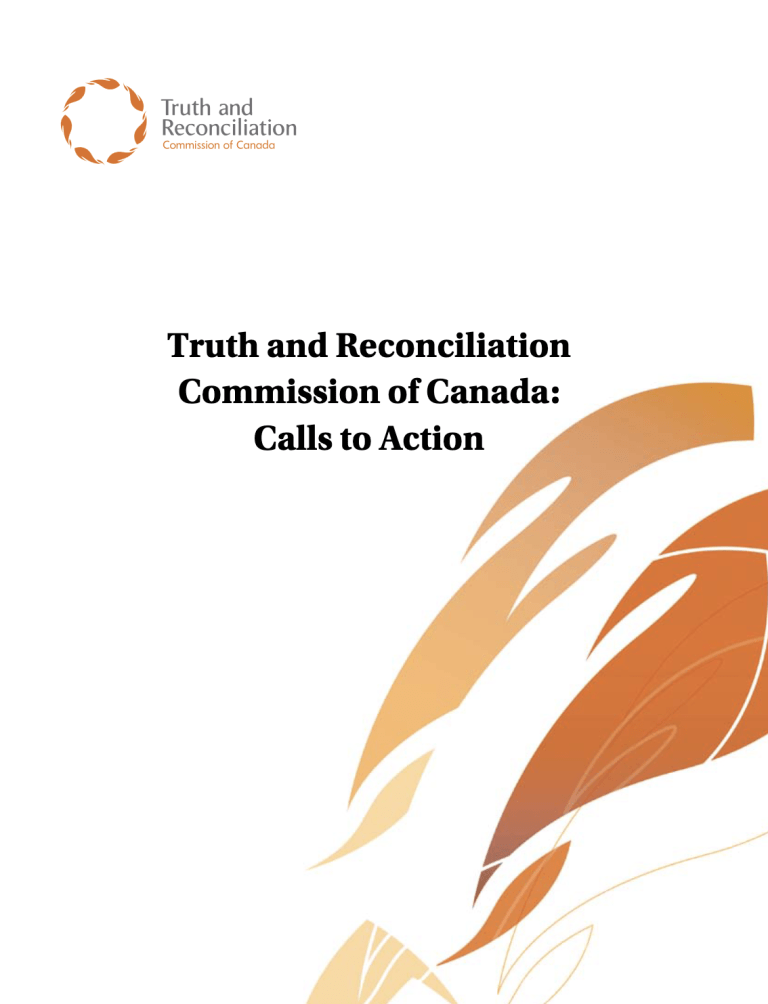4 search results
for
Racism
Legacy
Health
Recommendation 24: We call upon medical and nursing schools in Canada to require all students to take a course dealing with Aboriginal health issues, including the history and legacy of residential schools, the United Nations Declaration on the Rights of Indigenous Peoples, Treaties and Aboriginal rights, and Indigenous teachings and practices. This will require skills-based training in intercultural competency, conflict resolution, human rights, and anti-racism.-
Category and theme:
Audience:
Groups affected:
Location of recommendation:
Reconciliation
Professional development and training for public servants
Recommendation 57: We call upon federal, provincial, territorial, and municipal governments to provide education to public servants on the history of Aboriginal peoples, including the history and legacy of residential schools, the United Nations Declaration on the Rights of Indigenous Peoples, Treaties and Aboriginal rights, Indigenous law, and Aboriginal–Crown relations. This will require skills based training in intercultural competency, conflict resolution, human rights, and anti-racism.-
Category and theme:
Audience:
Groups affected:
Location of recommendation:
Reconciliation
Sports and reconciliation
Recommendation 90: We call upon the federal government to ensure that national sports policies, programs, and initiatives are inclusive of Aboriginal peoples, including, but not limited to, establishing:- In collaboration with provincial and territorial governments, stable funding for, and access to, community sports programs that reflect the diverse cultures and traditional sporting activities of Aboriginal peoples.
- An elite athlete development program for Aboriginal athletes.
- Programs for coaches, trainers, and sports officials that are culturally relevant for Aboriginal peoples.
- Anti-racism awareness and training programs.
-
Category and theme:
Audience:
Groups affected:
Location of recommendation:
Reconciliation
Business and reconciliation
Recommendation 92: We call upon the corporate sector in Canada to adopt the United Nations Declaration on the Rights of Indigenous Peoples as a reconciliation framework and to apply its principles, norms, and standards to corporate policy and core operational activities involving Indigenous peoples and their lands and resources. This would include, but not be limited to, the following:- Commit to meaningful consultation, building respectful relationships, and obtaining the free, prior, and informed consent of Indigenous peoples before proceeding with economic development projects.
- Ensure that Aboriginal peoples have equitable access to jobs, training, and education opportunities in the corporate sector, and that Aboriginal communities gain long-term sustainable benefits from economic development projects.
- Provide education for management and staff on the history of Aboriginal peoples, including the history and legacy of residential schools, the United Nations Declaration on the Rights of Indigenous Peoples, Treaties and Aboriginal rights, Indigenous law, and Aboriginal–Crown relations. This will require skills based training in intercultural competency, conflict resolution, human rights, and anti-racism.
-
Category and theme:
- Culture and language ,
- Decolonization and Indigenous rights ,
- Discrimination and hate ,
- Economic inequality ,
- Education and employment ,
- Human rights system ,
- Income insecurity and benefits ,
- Indigenous rights and self-governance ,
- International human rights ,
- Poverty and economic inequality ,
- Public education and reconciliation ,
- Racism ,
- Representation and leadership
Audience:
Groups affected:
Location of recommendation:
